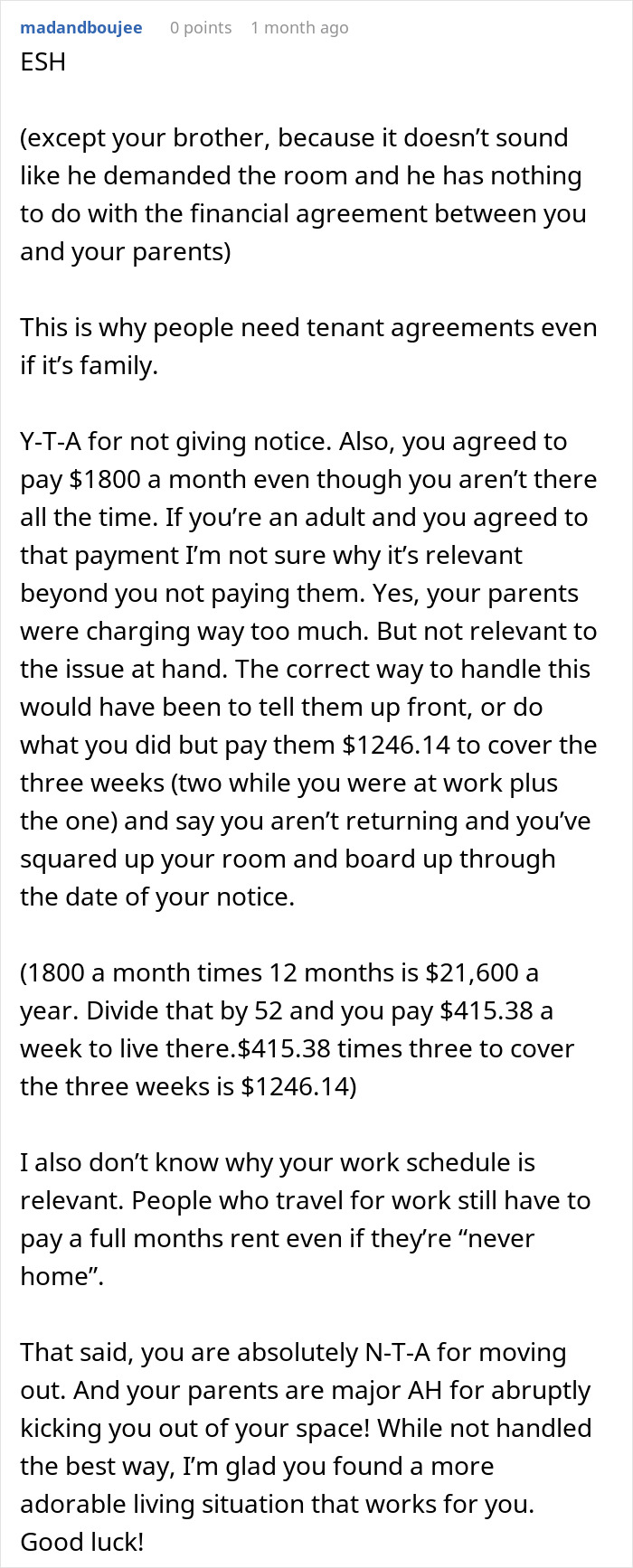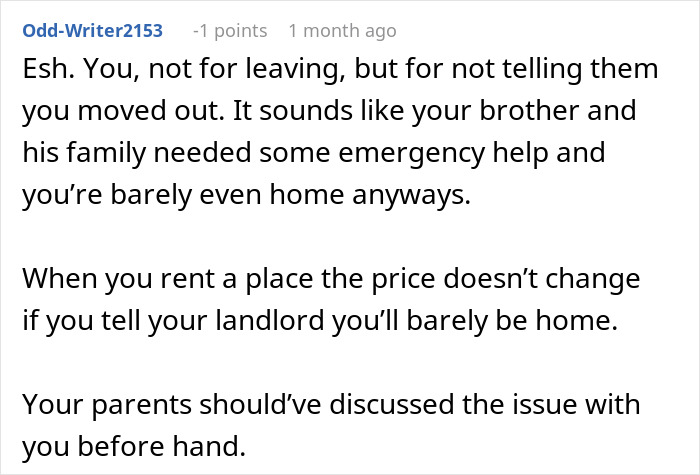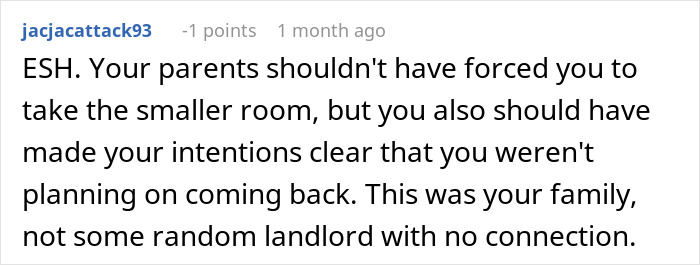A lot of young adults are still living with their parents. True, there’s also a cultural component to this: more people in their 20s live with their parents in Europe than in the U.S. As for Canada, the percentage of people aged 20-34 still living in their parent’s home is about 35 percent. And while it’s better for the youngsters’ wallets, household decisions and relationships can become tricky to navigate.
One Redditor found this out the hard way. She posted a story about an argument with her family that arose due to her deciding to move without notice. To find out whether her decision was ungracious, she decided to consult the Internet.
Moving out of your parent’s house can be healthy as it fosters growth and independence

Image credits: SHVETS production (not the actual image)
But this family got mad at their daughter for moving out and accused her of not helping them in their time of need
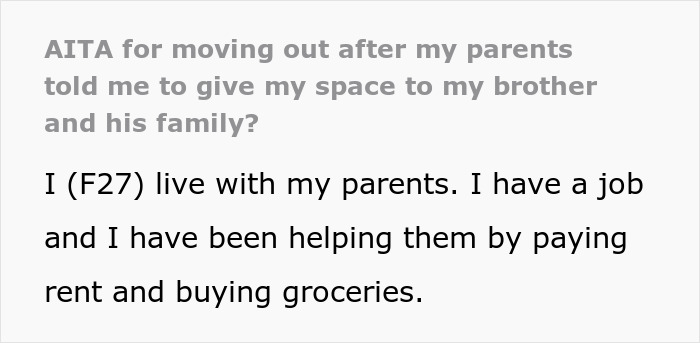
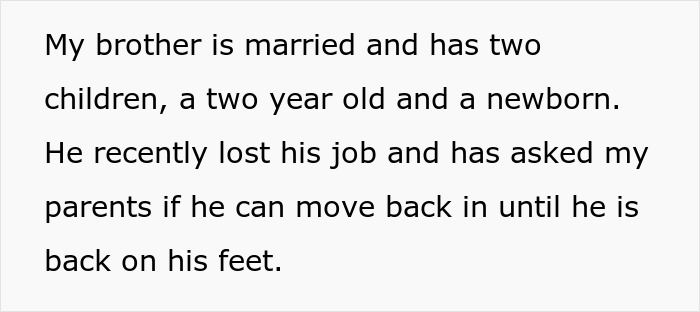
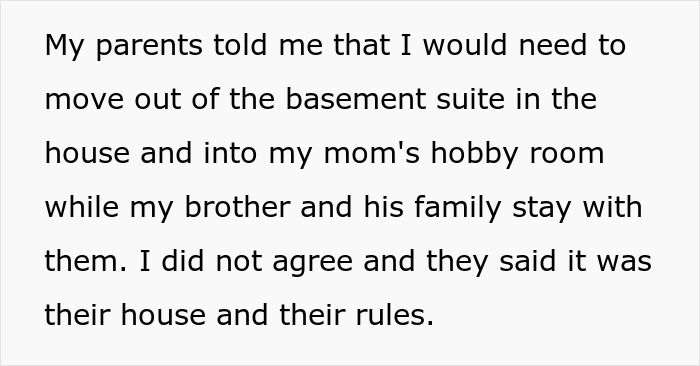
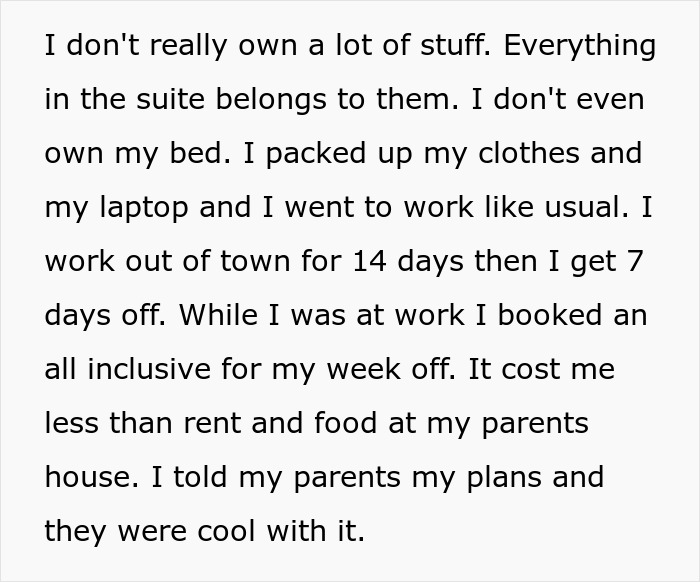

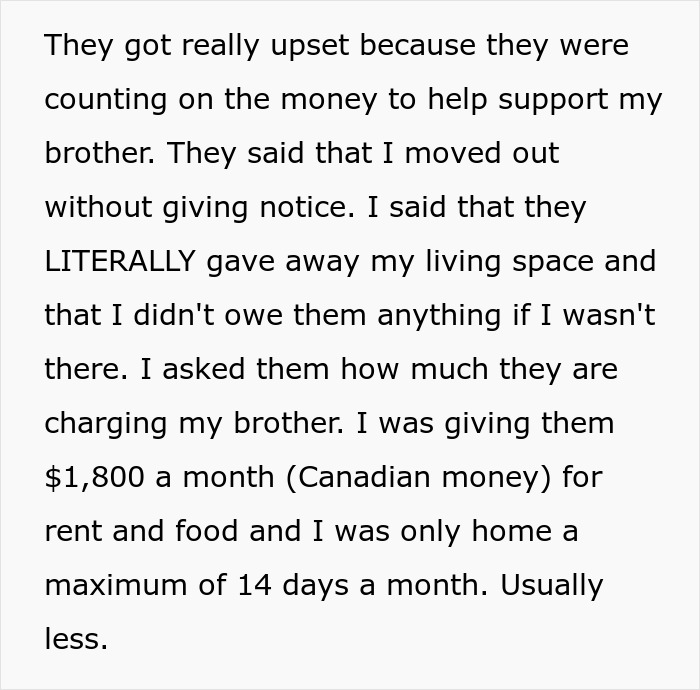

Image credits: cottonbro studio (not the actual image)
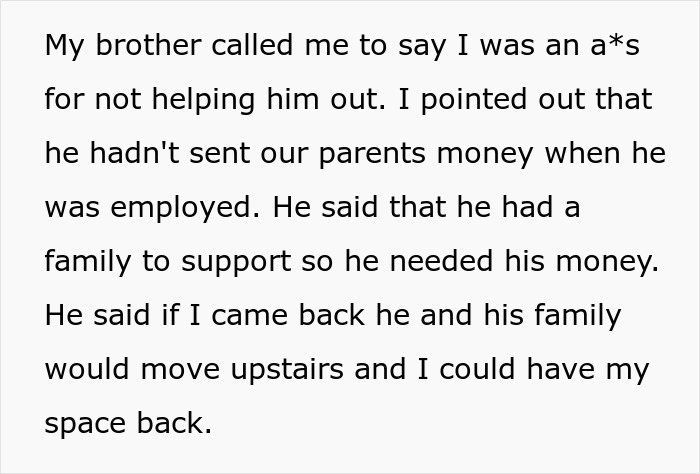
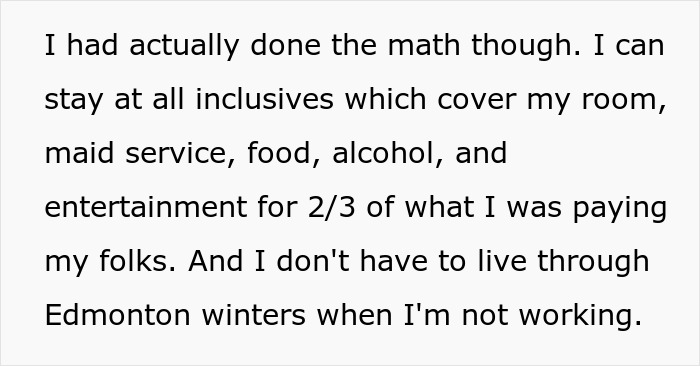


Image credits: Haunting_Tackle_6997
The OP clarified some things and gave more information in the comments
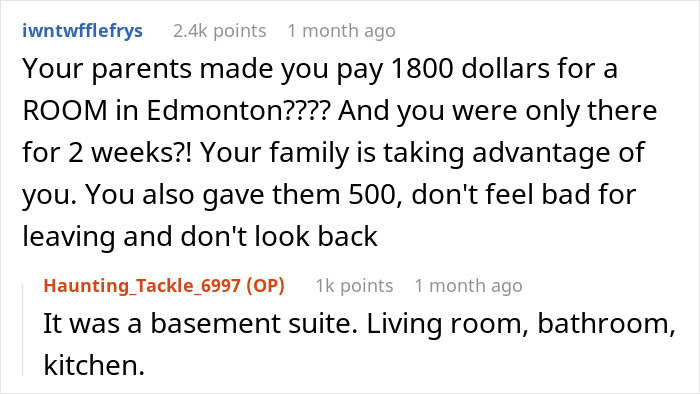
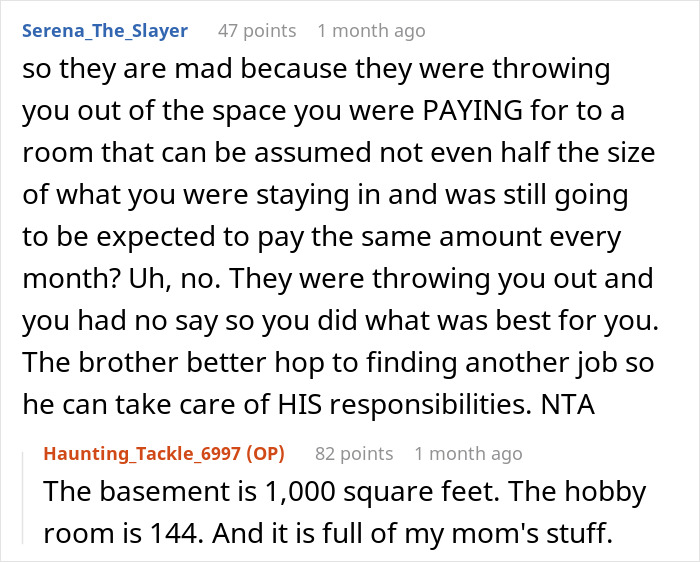
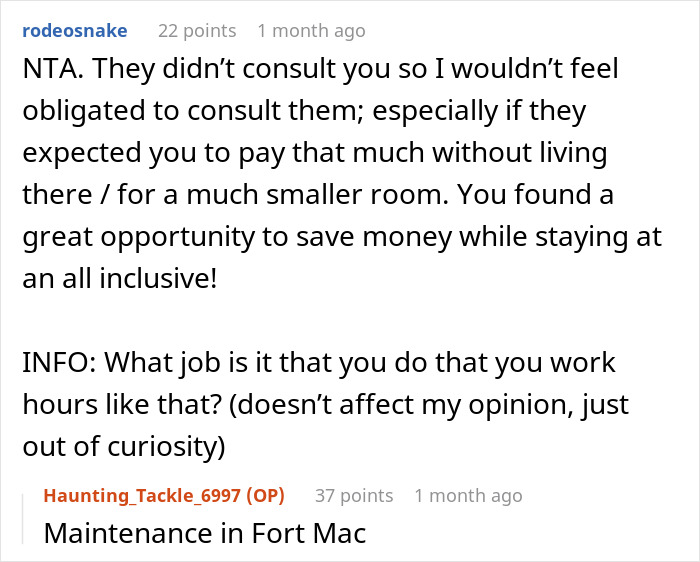
She also chatted with those who said she’s not the jerk
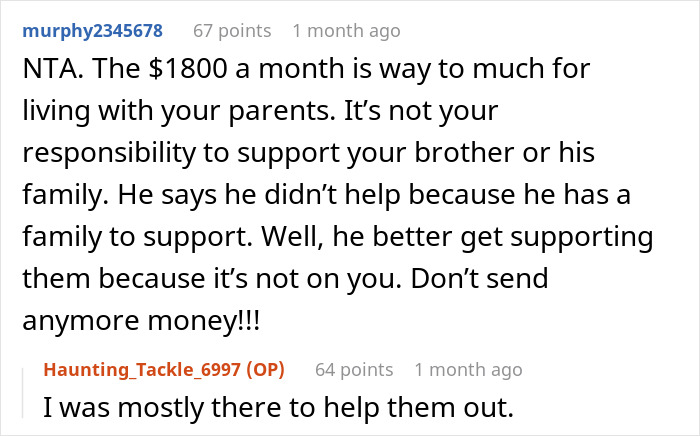

Living with parents well into adulthood is becoming a more popular trend
In some cultures, living with one’s parents is nothing new. The Pew Research Center 2021 survey showed that in the Mediterranean countries Portugal, Italy, and Greece, living with one’s parents is quite usual. Young adults in the Middle East say they most often do this because it is tradition or because they have no alternative: the cost of living is just too high.
Asian Americans, for example, are more likely to live in multigenerational households. We can see similar trends in China as well. Although they live together with their parents, that doesn’t mean these young people are not homeowners.
A 2017 study found that 70 percent of millennials in China own a home, but there is a catch. Because there are more men than women in China’s general population, parents do everything they can to help their children’s chances of getting married. That includes buying them a home.
Wasif Haseeb described his own experience in Canada for CBC. He says what once was a choice has now become a necessity. He describes how even people outside his South Asian community have to live with their parents.
“Many Gen-Zers and millennials from different cultural backgrounds told me they still live at home, too. Something that once felt exclusive to certain cultures has now become a reality for many young Canadians,” the man writes.
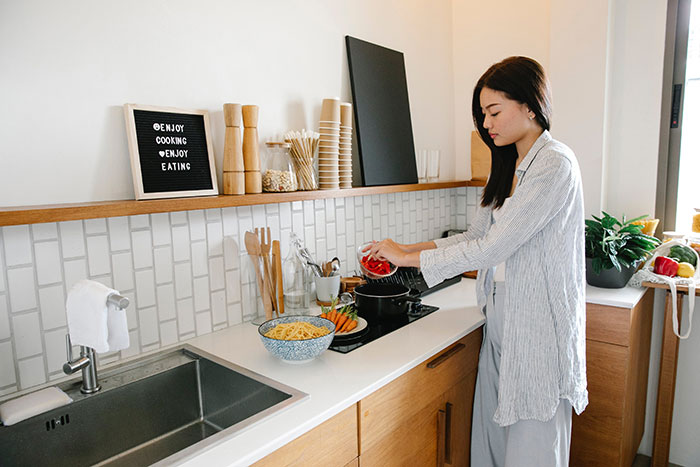
Image credits: Sarah Chai (not the actual image)
The reasons why more and more young adults choose to live or move in back with their parents vary
What are the reasons behind the trends described above? Well, for people in the south of Europe, the lack of well-paying jobs, expensive living costs, and the fact that young adults often finish their university degrees at a later age are all factors. Is Canada the same?
Haseeb writes that housing in Canada is just not affordable anymore. “My family recently moved from Winnipeg to Hamilton, Ont., where a one-bedroom apartment costs about CA$1,500 a month,” the Gen-Zer writes. “And the average cost of a home in Hamilton is now CA$1.1 million.”
With such price increases, the 28-year-old doesn’t have many other choices but to stay with his parents to possibly save up for a future home for himself. And he’s not the only one: some young Canadians say they’re trying to pay off their student loan debts. Also, some move back in with their parents to care for them.
The situation is especially dire in Ontario, the home to Ottawa, Canada’s capital. More than half the households in Ontario from ages 25 to 34 are renters. They have lower incomes compared to homeowners, but the costs of housing aren’t likely to start dropping. The main reason behind the high prices is the high demand and limited supply.

Image credits: RDNE Stock project (not the actual image)
One researcher investigates what it is like inside the households where adult children live with their parents
Umay Kader, a PhD candidate in sociology at the University of British Columbia, is looking at the problem from another angle. She’s more interested in how families navigate such living situations: how they make decisions, what the daily ins and outs are, and what the conflict resolution is like.
She says there are a lot of things to consider for her ongoing research. Like food, for example. “Who eats what? Who doesn’t eat?” she poses such questions. “Who has preferences? What happens when one of them is vegetarian or vegan? Or have health or dietary restrictions?”
What about inviting guests? More importantly, romantic or sexual partners? “How do they communicate this to the parents? What would be their parents’ response to that communication?” These are the issues that Kader is interested in.
She addresses the social construct of ‘leaving the nest’ that people who choose to live with their parents after they’re well into their 20s have somehow failed to do. “I’d been seeing a lot of news headlines [that asked] ‘When are these millennials moving out?'” Kader said.
“[These headlines were attached] with some pictures where the parents look upset or have a judgmental look towards the children. But you don’t know for sure what’s going on inside those households.”
Kader’s aim is to possibly open people’s minds more about how and why people choose these living arrangements. “Family and family relationships are not something that’s straightforward. There’s no single guide to family relationships,” she told The Tyee.
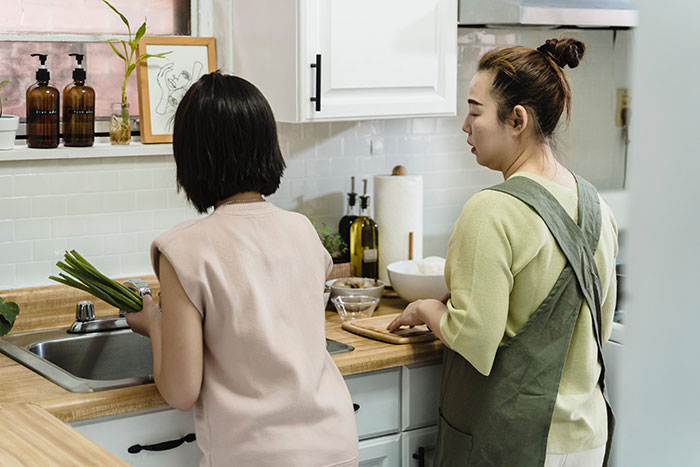
Image credits: Annushka Ahuja (not the actual image)
The commenters delivered their verdict – the majority said ‘NTA’
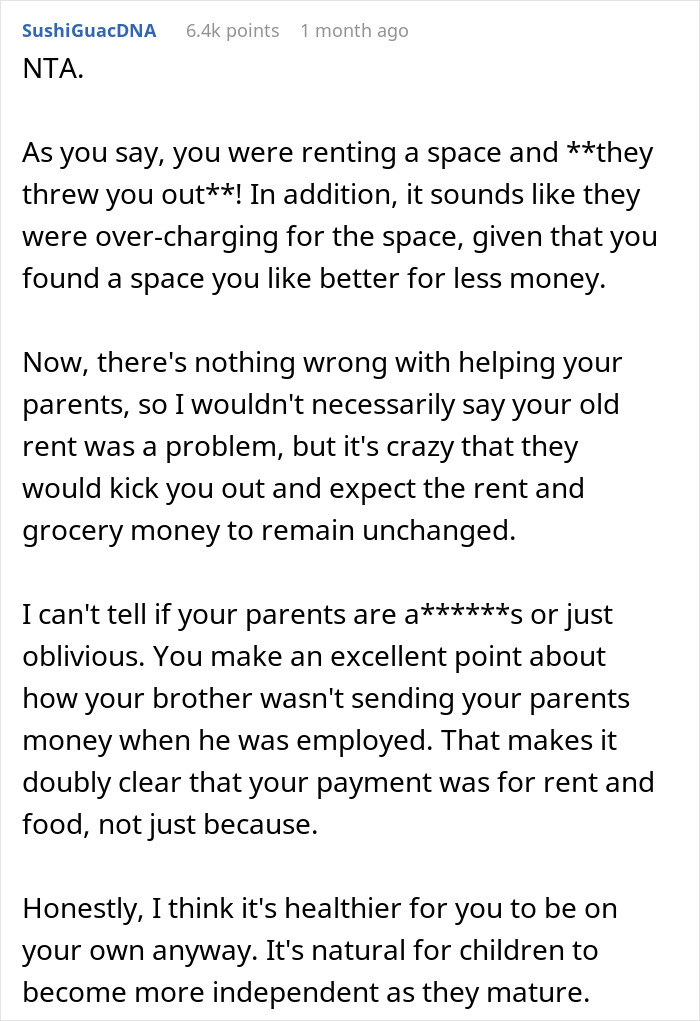




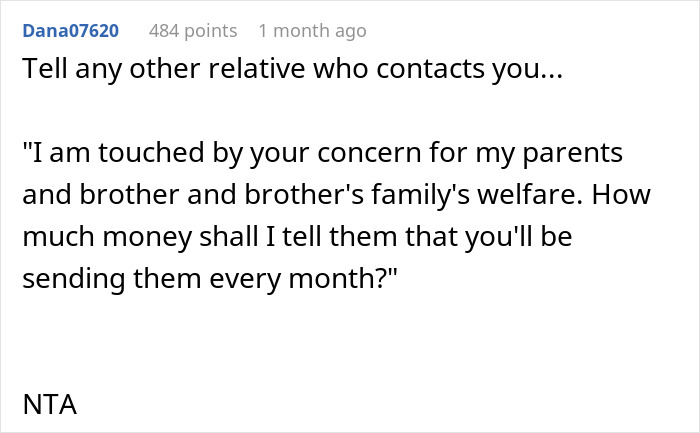


Others said she was a jerk for acting petty and entitled
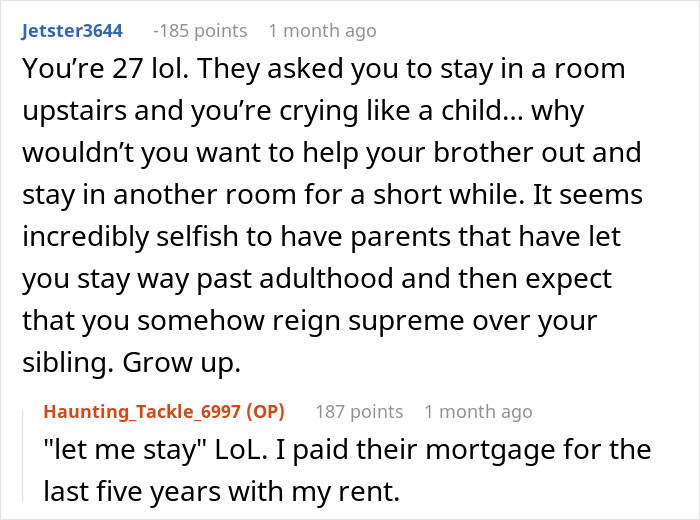
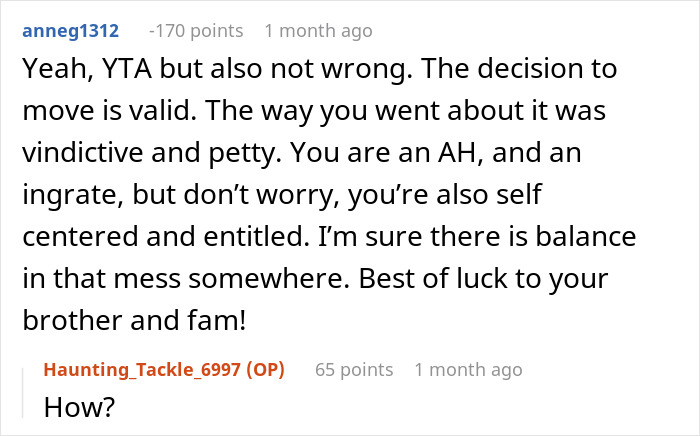
And some netizens thought everyone here was a jerk
